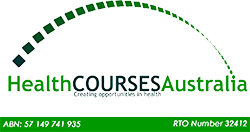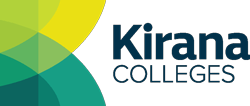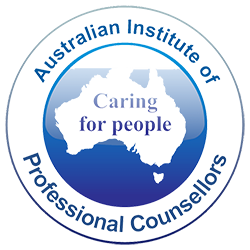Skills You’ll Gain from a Diploma of Counselling (CHC51015)
A counselling diploma covers a vast range of core units and elective units in counselling. From specialised skills like effective communication in the workplace to fundamental counselling methodologies — this course is a comprehensive and rich resource for those who wish to enter the sector.
Some of these key skills are:
- Building trusting relationships with clients
- Working with diverse people
- Counselling therapies
- Responding to crises and interventions
- Counselling legal and ethical responsibilities
- Grief support
- Mental health support
- Individualised support like life coaching
Is Counselling Right for Me?
Before you make the leap into studying for any future career, you need to make sure that career is right for you. Not only is it important for your future clients and employers, but it will ensure you have career satisfaction and are more likely to stay in that role for a long period of time.
Counselling requires a strong set of soft skills that you either have naturally or have developed over other career or life experiences. The role can be challenging emotionally, and there may be some facts about a counselling role that you may not expect.
To be a successful counsellor, having these natural abilities and counselling skills are a huge advantage:
Empathy
Empathy means being able to put yourself in another person’s shoes. It means understanding the feelings and meeting those people at an emotional level. In counselling, empathy is crucial. Counsellors meet clients every day with a range of support needs and mental health issues, so the ability to establish a trusting counselling relationship and identify with their feelings means you can help them more effectively.
Patience
As a counsellor, you meet all kinds of people with all types of communication styles. Some may not be as open or have trouble articulating their feelings or the support they need. Strong skills in patience mean you can take your time and allow details to come up in their own way.
Active listening
Active listening is a communication skill that involves not only hearing a person’s words — it is identifying a whole message through speaking with and reading other cues (like body language) and retaining that information without judgement or jumping into a self-derived response. Active listening is one of the most professional and important aspects of counselling.
Self-care
Arguably the most vital soft skill needed in a job as a counsellor is self-care. Many support workers find that days of assisting others with their needs can be physically, mentally and emotionally taxing. Actively creating time for yourself to recalibrate and replenish will allow you to separate work from your personal life, avoid burnout and ensure longevity in your career.
Key Points
Course entry requirements
A Diploma of Counselling (CHC51015) is offered by various TAFE and RTOs (registered training organisations), and although each provider may differ slightly, it has minimal barriers to entry. This means that if you’ve completed year 12 or equivalent, there is a good chance you can enrol.
While you study
If you need maximum flexibility while studying but still want some practical experience before you graduate, a counselling diploma has you covered. You can complete this course online with a work placement, so you’re fully prepared to enter the workforce. You can also choose to study full-time or part-time if you have other life priorities.
After your course
Upon completing a diploma in counselling, you will be qualified for an entry-level role in many counselling contexts. You may also be eligible to apply for membership with various industry bodies. These include the Australian Community Counselling Association (ACCA) and the Australian Counselling Association (ACA). Additionally, you can use this course as a pathway to further education in the field and obtain credit for the units you have already completed.
Career Outcomes
Upon completion of a Diploma of Counselling (CHC51015), the employment opportunities for graduates are diverse and can take place in many work environments. They may include job roles in:
- Counselling Services
- Family Support Services
- Community Services
- Residential Services
- Government Support Services
- Schools
- Rehabilitation Services
FAQ
What is counselling?
Counselling is a vital job in the community, and the role can be performed in private counselling practices, public counselling services, schools, rehabilitation services, case management and more.
As a counsellor, you support people with emotional difficulties of many kinds through talking therapies, either one-on-one or in a group setting. No day or case looks the same, and the results of your hard work in these cases can offer exceptional job satisfaction.
To be a successful counsellor and work in a professional practice, you must have a higher education qualification as well as strong interpersonal skills, including empathy, active listening and intuition. You also need a strong desire to help others and a dedication to professional and ethical work practices. Most importantly, you must prioritise your own needs because the role can be emotionally challenging, and the best counsellors look after themselves to give their clients the best service possible.
Can I study a Diploma of Counselling online?
Today, online study modes are available for many courses, offering a much higher level of flexibility in obtaining a qualification.
A Diploma of Counselling (CHC51015) has an online learning option available from many course providers. However, there are mandatory practical and placement units that must be completed face-to-face, on campus or in the workplace.
What jobs can I get with a Diploma of Counselling?
A diploma in counselling can allow you to gain entry into many counselling settings, such as:
- private therapy,
- drug and alcohol abuse,
- family and marriage,
- student and youth,
- grief and suicide, and many more.
Where you are employed will dictate different aspects of your counselling role, but your qualification, in addition to some time spent in the role, can lead to senior counselling positions and even the opportunity to lead teams in your workplace.
A Diploma of Counselling (CHC51015) can also be a pathway to professional development such as a Bachelor of Counselling, which will open doors to even more senior counselling or psychology roles. A pathway means credit transfers from your diploma qualification may allow you to finish the degree sooner. These recognition of prior learning (RPL) pathways are usually at the discretion of the course providers.
How much Is a Diploma of Counselling?
According to MySkills, the average cost of a Diploma of Counselling (CHC51015) is $9193 in total, but tuition fees will vary between providers, so it’s best to enquire directly.
Most course providers provide flexible payment plans that allow learners to spread the cost of course fees out over the duration of the diploma instead of paying upfront.
Financial assistance is available for eligible learners. These assistance programs may greatly reduce the cost of your course, so explore JobTrainer, subsidised training through your course provider and Australian Apprenticeships available to you in your state.
Eligible learners may also choose to take on a VET student loan which will allow them to start paying their fees back once they have employment.






